
So Good They Can't Ignore You: Why Skills Trump Passion in the Quest for Work You Love
Cal Newport, Dave Mallow, et al.
4.5 on Amazon
37 HN comments

The Richest Man in Babylon: Original 1926 Edition
George S. Clason , Charles Conrad, et al.
4.7 on Amazon
37 HN comments

Basic Economics
Thomas Sowell
4.8 on Amazon
35 HN comments
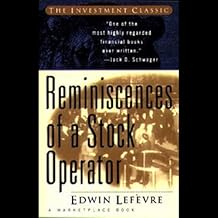
Reminiscences of a Stock Operator
Edwin Lefevre, Rick Rohan, et al.
4.6 on Amazon
35 HN comments
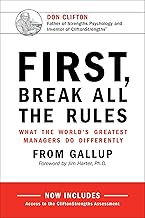
First, Break All the Rules: What the world's Greatest Managers Do Differently
Jim Harter, Marcus Buckingham , et al.
4.6 on Amazon
34 HN comments
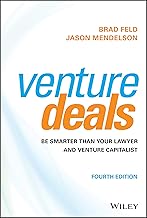
Venture Deals: Be Smarter Than Your Lawyer and Venture Capitalist
Brad Feld and Jason Mendelson
4.7 on Amazon
31 HN comments
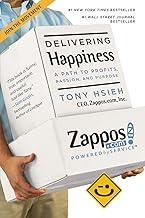
Delivering Happiness
Tony Hsieh
4.6 on Amazon
30 HN comments
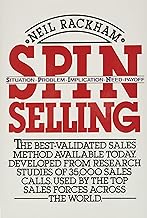
SPIN Selling
Neil Rackham
4.5 on Amazon
30 HN comments

Nickel And Dimed: On (Not) Getting By In America
Barbara Ehrenreich
4.3 on Amazon
29 HN comments

The Five Dysfunctions of a Team: A Leadership Fable
Patrick Lencioni
4.6 on Amazon
28 HN comments

The Startup Owner's Manual: The Step-By-Step Guide for Building a Great Company
Steve Blank and Bob Dorf
4.5 on Amazon
27 HN comments

Give and Take: A Revolutionary Approach to Success
Adam M. Grant PhD, Brian Keith Lewis, et al.
4.6 on Amazon
25 HN comments

Titan: The Life of John D. Rockefeller, Sr.
Ron Chernow
4.7 on Amazon
23 HN comments

The Challenger Sale: Taking Control of the Customer Conversation
Matthew Dixon and Brent Adamson
4.5 on Amazon
22 HN comments
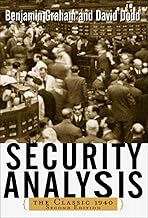
Security Analysis: Principles and Techniques
Benjamin Graham and David Dodd
4.7 on Amazon
22 HN comments
tekkertjeonAug 25, 2020
chehoebunjonNov 14, 2012
GreenJelloShotonMar 5, 2020
That sounds to me like the start of some sort of relationship. If the guy just wanted info from the book, then why not just read the book?
omegantonMay 3, 2013
If you are a developer the hardest part is selling, do it from day cero. Also start a blog, I find people looking at blogs. And of course read "the startup owner's manual".
webmavenonNov 26, 2020
Good (even great) book, but has some flaws and focuses mostly on enterprise costumers. The revised version The Startup Owner's Manual is more polished and covers a wider range of business models.
> - The Lean Startup
An excellent recommendation. The other books in the series (especially IMO Running Lean and Lean Analytics) are also worth a look:
https://www.amazon.com/stores/page/7509FE4F-9888-4384-ACBC-D...
mindcrimeonJuly 20, 2020
The Startup Owner's Manual (note: this and the entry above are sorta/kinda the same book, just different editions. But there's enough difference between the two that I recommend both)
The Art of the Start
The Lean Startup
The Mom Test
freshfeyonSep 12, 2012
The Startup Owner's Manual, Elements of Typographic Style, Missing Manual: Photoshop CS5 and Classroom in a Book: Illustrator CS5 are likely to bring in around 30-50$ if you trade them in on Amazon. I'll organize the shipping label and the package slip, you send them to amazon and we share the gift card amount :)
kriroonJune 17, 2013
https://www.youtube.com/channel/UCimRGeoiwUPmIddym-HdaCg
"The Lean Startup" by Ries is also good but RL is more condensed (lean?!) imo
"Startup Owner's Manual" is also good and they have a course on edx iirc
Edit: It's a udacity class, close enough. Link:
https://www.udacity.com/course/ep245
mindcrimeonFeb 13, 2013
At the risk of sounding flippant, you can basically reduce it to "talk to customers". Note however, that @sgblank does NOT advocate collecting the union of all requested features and implement all of them! The idea is to identify the most requested features, or, to really be more specific, the features that somebody is willing to pay for.
The principle behind this is easy to understand, although the actual process of doing this isn't necessarily easy as it takes a lot of work to go out, find potential customers, interview them, etc.
999michaelh2002onJan 29, 2021
Foundr has a course from the co-founder of BigCommerce, Mitchell Harper. The guy's worth around $127 million, very successful and obviously knows his stuff.
The course is called '60 day startup' and promises to get you your first 100 customers in 2 months, $1 million revenue in a year, etc. It covers every stage of a tech startup's journey, the mistakes Mitchell Harper made and how I can avoid them, etc.
Now this isn't a scam because if you look on glassdoor & trustpilot, and see the people Foundr has interviewed, they are obviously very trustworthy and highly respected.
But $2000 is all my savings. Im 18 and I don't have much in savings obviously. However, if the information I get is really as good as they make it seem... I think I'd be willing to pay for it.
There's also a 4 month incremental payment, smth like $579 a month for 4 months.
Do you guys think I should buy this course? I know there are existing books/free courses on startups e.g. 'The Startup Owner's Manual'... but they're all really general & their info isn't all relevant to what I'm trying to do. The Foundr course is specific to TECH STARTUPS - which is exactly the type of startup I'm trying to start. Literally all the information, I think, will be relevant and useful for me - and also from someone who's very credible.
Furthermore, I think that it would be extremely time-efficient to have someone like Mitchell Harper condense all of his learnings & strategies into a single course, and not have to sift through dozens of books, trying to determine what info is relevant to creating a tech startup and what is not.
What do you guys think?
EDIT: There is a 365 day moneyback guarantee. But they say that you need to show them proof that you've completed all the assignments, tried the strategies they've suggested, etc. and only if the course fails to get results, will they refund you.
akassoveronOct 23, 2012
djsamsononSep 28, 2012
You want to get a really good understanding why these people have this problem and how they've tried going on without your product. Ask them how much they would be willing to pay to get their problem solved. Then ask if your solution is helpful and show them a demo.
Steve Blank is the Godfather of customer development. I highly suggest the Startup Owner's Manual. But if you don't have time to read that all right now, just realize you need some in-depth interviews (preferably in person interviews) and then use the Google Adwords landing page test as a mass scale test.
Good luck.
dualvectorfoilonFeb 15, 2021
The best book on the subject is the “Startup Owner’s Manual.” If you’re starting a B2B company, try “Lean B2B.”
graemeonSep 19, 2012
The Lean Startup is a good high level overview of the underlying concept. I found it a bit overly focussed on launching "lean startups" within big companies. This may have been to boost consulting. Whatever the reason, it made the book less relevant to my experience.
But the Lean Startup is a quick, easy read, and you will get some actionable knowledge out of it if you're not already familiar with the ideas.
If you already know the concept, but want to put it into practice, go with Steve Blank's book.
naboavidaonJuly 22, 2016
Incerto - Nassim Nicholas Taleb (4 volumes, with The Black Swan as my favourite). Learn how not to be a fool, or at least, minimize its impacts.
The Startup Owner's Manual - Steve Blank. Learn how to find your way through the market.
hansefonAug 27, 2012
With agile, sometimes the word is used to justify a rigid excess of ceremony, or as a firewall for lazy developers to hide behind to avoid being responsive to non-engineering members of the organization, or as an unrealistic attempt to turn software development into an assembly line of a bunch of jack-of-all-trades "cross-functional" team members ("specialists? we don't need no stinkin' specialists!"). But the core observation of agile is that writing huge planning documents and spending weeks perfecting PRDs and GANTT charts at the outset of an engineering project and then using these to derive project timelines and costs is inefficient, and that "delivery to QA" 3 months over an arbitrary schedule and 70% over an arbitrary budget is a classic failure mode for this approach to planning. Instead, a focus on building self-organizing, trusted teams who are delivering working software frequently and iteratively, and gathering customer feedback and adjusting "the plan" after each delivered increment of software can result in both happier developers AND happier customers.
Similarly, "lean startup" CAN be synonymous with "changing my mind about what business I'm in and 'pivoting' every 3 weeks", but really the core observation could be summarized as "build things people want", with all these new-fangled buzzword-y tools like customer development interviews, business model canvases and even "pivoting" as a means to this end. While the Ries book is useful, Steve Blank's The Startup Owner's Manual (http://www.amazon.com/The-Startup-Owners-Manual-Step-By-Step...) is phenomenal and the ideas there certainly "transfer very well outside the world of tech start-ups."
Take what works, leave what doesn't, ignore the hype and think critically.
blrskonMay 26, 2012
Discours de la Methode - Descartes
smartial_artsonDec 26, 2012
http://amzn.to/12DMx27
A good no-nonsense self-help book. Outlines set of strategies for dealing with challenging situations in everyday life, touching on areas such as Parenting, Career, Dating. Author also looks into common misconceptions about how we function and which mental tricks are efficient and which are not so much.
2. "Start Small, Stay Small: - A Developer's Guide to Launching a Startup"
http://amzn.to/12DMzHt
I actually have a blog post on it here - http://blog.nimblegecko.com/when-your-drugs-wear-off/ - in short it's a book for developers that focuses on how to start building an online product, with heavy emphasis on market, and marketing. It also addresses some of the common mistakes we, as developers, tend to make when conceiving and carrying out the execution of an idea.
3. "The Startup Owner's Manual: The Step-by-Step Guide for Building a Great Company "
ebook - http://amzn.to/V3BxWq
dead tree book - http://amzn.to/12DNfwd
This is classic, really. What was interesting for me in particular is the types of markets that a startup launches to - new market, resegmenting an existing market (low-end, high-end, specific features), clone market, and all of the limitations/dangers/expectations/growth profiles that choice of marketing strategy entails.
4. "Core Transformation: Reaching the wellspring within"
http://amzn.to/Vw5nAR
Not that I've only read this book in 2012, but I keep returning to it - that's probably one of not too many truly life changing books for me. It contains very simple, yet very efficient reframing exercise (think NLP) that helps to uncover the true motivations behind behaviours that you don't like in yourself, and change those for good, yet in a completely unexpected and never predictable ways.
Red_TarsiusonMar 5, 2015
- Start here: http://www.ycombinator.com/resources/ There are many wonderful articles written by Graham himself.
- The Four Steps to the Epiphany, Steve Blank.
- The Art of the Start, Guy Kawasaki.
- The Startup Owner's Manual: The Step-by-Step Guide for Building a Great Company, Steve Blank and Bob Dorf.
- Zero to One: Notes on Start Ups, or How to Build the Future, Peter Thiel.
- ReWork: Change the Way You Work Forever, Jason Fried and David Heinemeier Hansson.
- I haven't read the Founders at work series yet, but everyone seems to find it very valuable.
smallbigfootonMar 20, 2013
mindcrimeonApr 11, 2013
Also, where there are already competitors, you have the option to adopt a "fast follower" strategy, or you can look into resegmenting the market. I highly suggest reading The Four Steps To The Epiphany by @sgblank, and/or his other book The Startup Owner's Manual and give a lot of thought to his approach. Use "Customer Development" to explore your ideas, whether they are B2B or B2C and then evaluate which to pour your energy into...
mindcrimeonOct 3, 2016
Read The Four Steps To The Epiphany by @sgblank, and The Art Of The Start by Guy Kawasaki. Zero To One is a good book, but it isn't as much about the "nuts and bolts" of actually building a business. TFSTTE is very much "nuts and bolts". It is, IMO, about as close as you can get to a "paint by the numbers" guide to building a business.
There is a newer version of TFSTTE, retitled The Startup Owner's Manual. It is also good and while it is, in many ways, "just" the second edition of TFSTTE, there's enough new content that it should probably count as a separate book. I'd actually recommend reading both.
wamonFeb 27, 2012
Whatever the calming potato pond is supposed to do here, the subsequent jargon storm undoes it. If "The Startup Owner's Manual" reads like this article (a weird mix of narrative and startup-ese with italics strewn about like a Christopher Walken monologue), I'd be hesitant to spend 40 bucks on it.
mindcrimeonMay 10, 2013
A point a lot of people seem to miss about MVPs and the whole Lean Startup approach (specifically the aspects taken from @sgblank's Customer Development Methodology) is that you start out focusing on early adopters. You aren't, with the initial cut, usually trying to sell to the mass market yet. You're trying to find out if there's any market for "the thing you're building".
This, to me, implies that if you're working with an MVP that is "half finished" or less than polished, you don't publicize it to the world and try to drive massive traffic to it right away (this is assuming some kind of webapp, SaaS thing). A closed, invite only, beta or trail program, just to get feedback, find out how customers interact with the thing, etc., should probably come first.
Of course, webapps are a slightly different model than what @sgblank wrote about in TFSTTE, and he revised some of his stuff in The Startup Owner's Manual to address that more specifically.
mindcrimeonJuly 24, 2013
I think part of the problem is that the "lean startup" approach inherits a lot of (or all of) Steve Blank's "Customer Development Methodology", and CD is not a quick and easy thing to learn. I mean, the basic gist of it can be taught in 5 minutes, but the actual methodology is very elaborate and detailed. But if all you read is the "Lean Startup" book, or a few blogs on the topic, and don't actually sit down and read The Four Steps To The Epiphany (or The Startup Owner's Manual) directly - and probably a few times - you probably don't know enough about the topic to really use it, or comment on it.
For perspective, I'll offer this: I first read TFSTTE about 2 years ago, and have been incorporating the approach into what we do at Fogbeam Labs ever since. I've also read the Eric Ries book, and several other titles on the topic, and a ton of blog posts on the topic. I've also attended Lean Startup Circle meetings and follow the LSC mailing list. And I'll still quickly admit that I have a lot to learn. I think I could teach the basics to somebody else right now, based on what I know, but I'm not even close to being a real expert on this. And I've been at ground-level, actually implementing this (albeit not full-time) for two years or so..
It's a bit like Agile Development in a way... "Lean Startup" and "Agile Development" have both become trending buzzwords that are often flaunted by people who don't really understand all the depth and nuance of the topic, which results in an inevitable backlash (also by people who don't really understand the topic in any depth).
polivkaonFeb 15, 2012
I thought my hypotheses may have been incorrect because Steve Blank already has a book that he could use in the class (4 steps to the epiphany). However, looks like he is double timing it to release a new book for the Lean Launchpad class.
Snippets of the email from Steve Blank:
"First the bad news: I wanted to update you that the start of my upcoming online Lean LaunchPad will be delayed. But the good news is that, I will indeed be launching an online LaunchPad course. It will be offered within the next 60 days.
Why the delay? I am revamping the Lean LaunchPad class to base the new course on my new book, The Startup Owner's Manual (The book that is just what its subtitle says: the step-by-step guide to building a great company). This book replaces its 10-year-old predecessor, The Four Steps to the Epiphany. So the course and The Startup Owner's Manual will both provide you with ten years of real-world learning amassed since The Four Steps to the Epiphany was first published.
The Lean LaunchPad course will be in modules you can take asynchronously and digest at your leisure, ideally with your fellow startup team members. If you want to get a head start, you can buy the recommended text, The Startup Owner's Manual. (The book is recommended, but not required, for course participants.)"
mindcrimeonJuly 9, 2013
If I were putting together a list of essential books for startup founders, I'd go with:
1. The Four Steps To The Epiphany
2. The Startup Owner's Manual
3. Business Model Generation
4. The Art Of The Start
5. Blue Ocean Strategy
6. Crossing The Chasm
And yes, I do realize that (1) and (2) are largely the same book. But there is enough difference that I'd actually recommend people read both, especially if they're doing enterprise software startups. For consumer facing webapps or something of that nature, I might drop TFSTTE in favor of just TSOM.